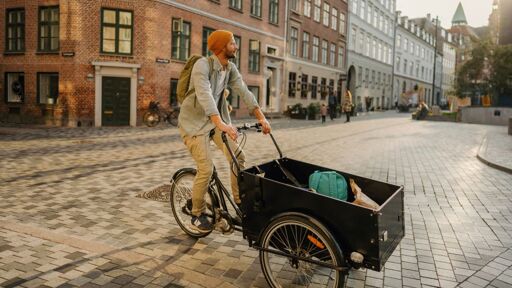- cross-posted to:
- futurology@futurology.today
- cross-posted to:
- futurology@futurology.today
The surge in online shopping, accelerated by COVID-19, has driven up the demand for package deliveries, and that demand continues to rise.
As traditional delivery methods contribute to urban traffic congestion and pollution, cargo bikes - a staple of bike-friendly countries like Denmark and the Netherlands - are becoming a common sight in cities across Europe as a sustainable and efficient alternative to vans.
These larger, typically electric bikes with separate carriers can transport a wide range of loads, from small parcels to larger items, making them ideal for urban deliveries.
In Europe, it is estimated that up to 50 per cent of motorised trips involving the transport of goods in cities could be made by cargo bikes and bicycles, according to a recent study.



yeah, there are absolutely not wheels on its side which makes it wider, the whole construction doesn’t give it totally different driving characteristics and there is a bike lane to home of every single one of your potential customer, so, you know, these bikes won’t use the width of one car lane, because often times it will be the only option.
yeah, lot of empty space to take everything you would fit in your average delivery van. everyone can clearly see that.
oh i am? are you sure about that? 😂
cargo bike is not efficient alternative to a car, because it is far slower and has much lower capacity than the car, so you will deliver less cargo in longer time. or same cargo in same time using a LOT MORE bikes.
that doesn’t mean and i never said they don’t have its use-cases, but claiming it will solve the traffic congestion is wild exaggeration.